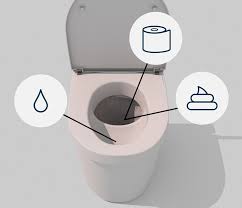Sustainable Living: Key Benefits of a Composting Toilet
As sustainability takes center stage in global conversations, more people are seeking practical ways to live in harmony with the environment. One innovative solution gaining momentum is the composting toilet. Offering a combination of environmental, economic, and practical benefits, composting toilet are transforming how we think about waste management. Here, we explore the key benefits of using a composting toilet and its role in promoting sustainable living.
Eco-Friendly Waste Management
A composting toilet functions by breaking down human waste into compost through natural processes such as aerobic decomposition. This method eliminates the need for water to flush waste into sewage systems or septic tanks, dramatically reducing water consumption and the environmental burden associated with wastewater treatment.
By converting waste into nutrient-rich compost, these toilets also support a closed-loop system. The end product can be safely used as a soil conditioner in non-edible landscaping, enriching soil quality while reducing dependency on synthetic fertilizers. This approach exemplifies how sustainable solutions can transform waste into valuable resources.
Significant Water Conservation
Traditional flush toilets consume a staggering amount of water, with each flush using several gallons. In fact, toilets account for roughly 30% of household water usage. Composting toilets, on the other hand, require little to no water to operate, making them an excellent choice for areas facing water scarcity or drought.
Water conservation is not just about reducing consumption; it’s also about preserving this vital resource for future generations. By adopting composting toilets, individuals and communities can play an active role in alleviating pressure on freshwater supplies. This is especially critical in regions where water availability is already under stress.
Cost Savings
From an economic perspective, composting toilets can lead to significant cost savings. They eliminate expenses associated with water usage, plumbing repairs, and sewage treatment. Furthermore, these toilets often have simpler installation requirements compared to traditional systems, especially in remote or off-grid locations where extending sewer lines can be costly.
Over time, the reduced reliance on water and maintenance makes composting toilets a financially smart choice. Whether for residential homes, cabins, or eco-friendly businesses, the long-term savings are considerable.
Reduced Environmental Impact
Conventional wastewater treatment systems often rely on energy-intensive processes, contributing to greenhouse gas emissions. Composting toilets bypass these systems, reducing the carbon footprint associated with waste management. Additionally, by treating waste at the source, they prevent pollution of rivers, lakes, and oceans, protecting aquatic ecosystems.
The compost produced from these toilets also plays a role in mitigating environmental harm. By replenishing soil nutrients naturally, it reduces the need for chemical fertilizers that can harm the environment when overused.
Versatile Applications
Composting toilets are adaptable and can be installed in a wide variety of settings, from urban homes to rural cabins, campsites, and eco-tourism destinations. Their flexibility makes them a viable solution for areas with limited infrastructure, remote locations, or communities looking to embrace sustainable practices.
Conclusion
A composting toilet is more than just an alternative to traditional waste management systems—it’s a step toward sustainable living. By conserving water, reducing costs, and minimizing environmental impact, it empowers individuals and communities to live in greater harmony with the planet.
As we move toward a greener future, adopting innovative solutions like composting toilets will play a vital role in building a sustainable world for generations to come.


